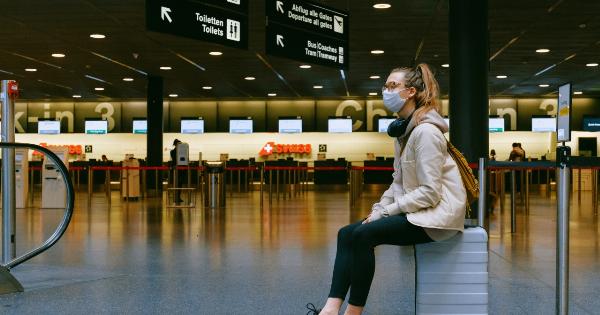When a new strain of influenza emerged in 2019, few people could have predicted the devastation it would cause. Within months, the virus had spread across the world, infecting millions and pushing healthcare systems to the brink of collapse.
The Economic Impact
But the impact of the pandemic wasn’t limited to public health. With entire countries going into lockdown and businesses forced to close their doors, the world economy ground to a halt.
As companies struggled to stay afloat, unemployment surged and stock markets plummeted.
Now, experts are warning that the economic fallout from the pandemic could last for years to come, sparking a global recession that could rival the worst in history.
The Direct Fallout
One of the most immediate consequences of the pandemic was the sudden loss of jobs, as businesses across all sectors shut down to try and slow the spread of the virus.
In the US alone, more than 20 million people lost their jobs in April 2020, leading to an unemployment rate of over 14%. This was the highest level since the Great Depression of the 1930s, and far higher than during the global financial crisis of 2008.
Even those who managed to keep their jobs saw their incomes shrink, as companies cut hours, wages and bonuses in an attempt to stay afloat.
The Business Impact
The business impact of the pandemic has been widespread and severe, with companies of all sizes struggling to adapt to the new reality of a world in lockdown.
Many smaller businesses have been hit particularly hard, as they lack the resources of larger firms to weather the storm. With revenue streams drying up almost overnight, many SMEs have been forced to close their doors permanently.
But even larger companies have suffered significant losses, with the aviation, tourism and hospitality industries taking a particularly big hit.
Air travel came to a virtual standstill as countries closed their borders, and hotels and restaurants were forced to shut down to prevent the spread of the virus.
The Long-Term Impact
While many countries are gradually easing lockdown restrictions and attempting to restart their economies, the long-term impact of the pandemic on businesses and individuals could be severe.
Many experts predict that we will see a wave of bankruptcies and foreclosures as companies and individuals struggle to repay debts accumulated during the pandemic.
Meanwhile, the pandemic has exposed the fragility of global supply chains, with countries and companies now re-evaluating their dependence on overseas suppliers.
This could result in a reshoring of manufacturing and other industries, which could have significant implications for global trade.
The Government Response
Given the scale of the economic fallout from the pandemic, governments around the world have introduced unprecedented measures to try and mitigate the damage.
In the US, the CARES Act provided a $2 trillion stimulus package to support individuals and businesses affected by the pandemic. Similar measures have been introduced in countries around the world, including the UK, Canada and Australia.
Despite these efforts, however, many experts believe that more needs to be done to address the long-term impact of the pandemic on the economy.
The Bottom Line
The outbreak of the COVID-19 pandemic has led to a global recession unlike any other in history. With millions losing their jobs and businesses struggling to stay afloat, the impact of the pandemic on the world economy could last for years to come.
While governments have stepped in to try and mitigate the damage, many experts believe that more needs to be done to address the long-term impact of the pandemic on businesses and individuals.





























